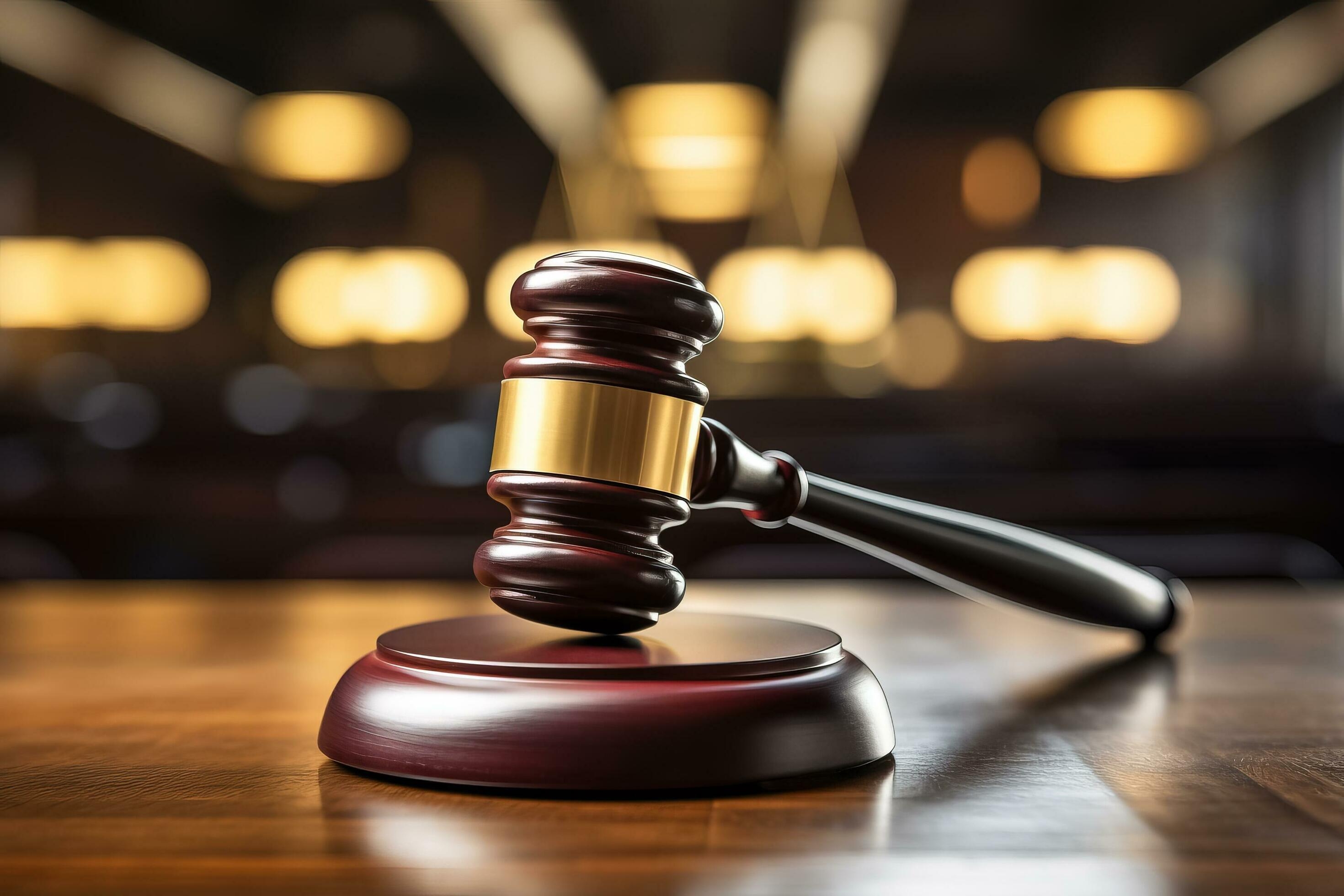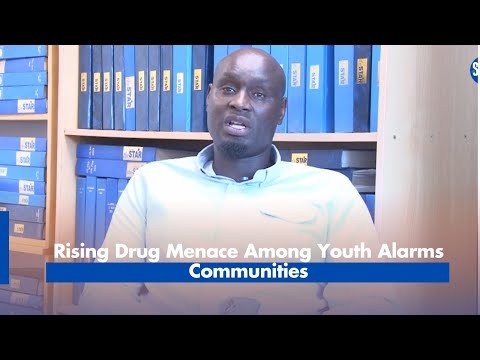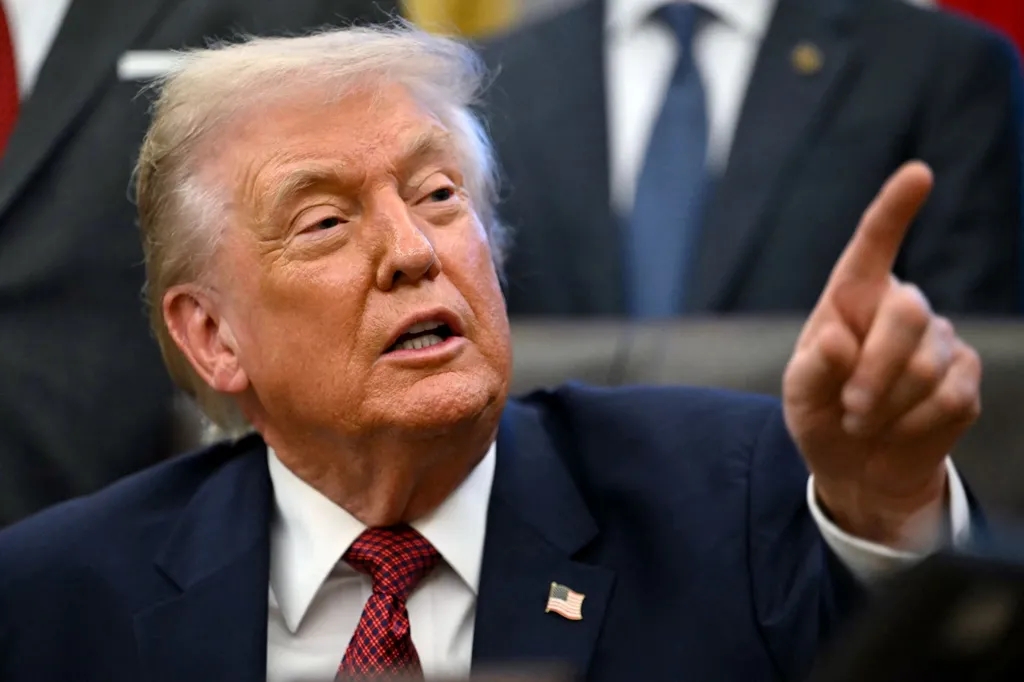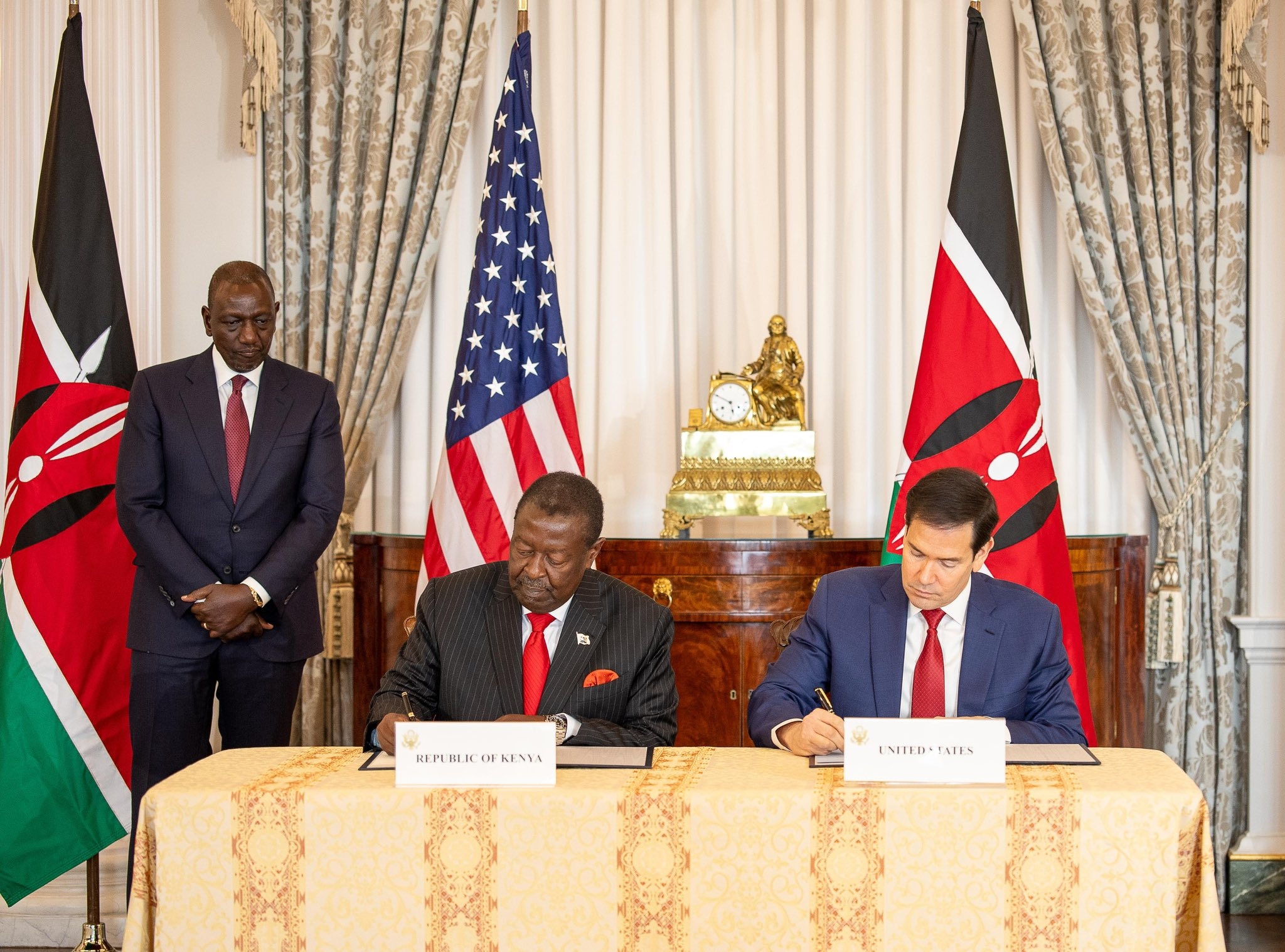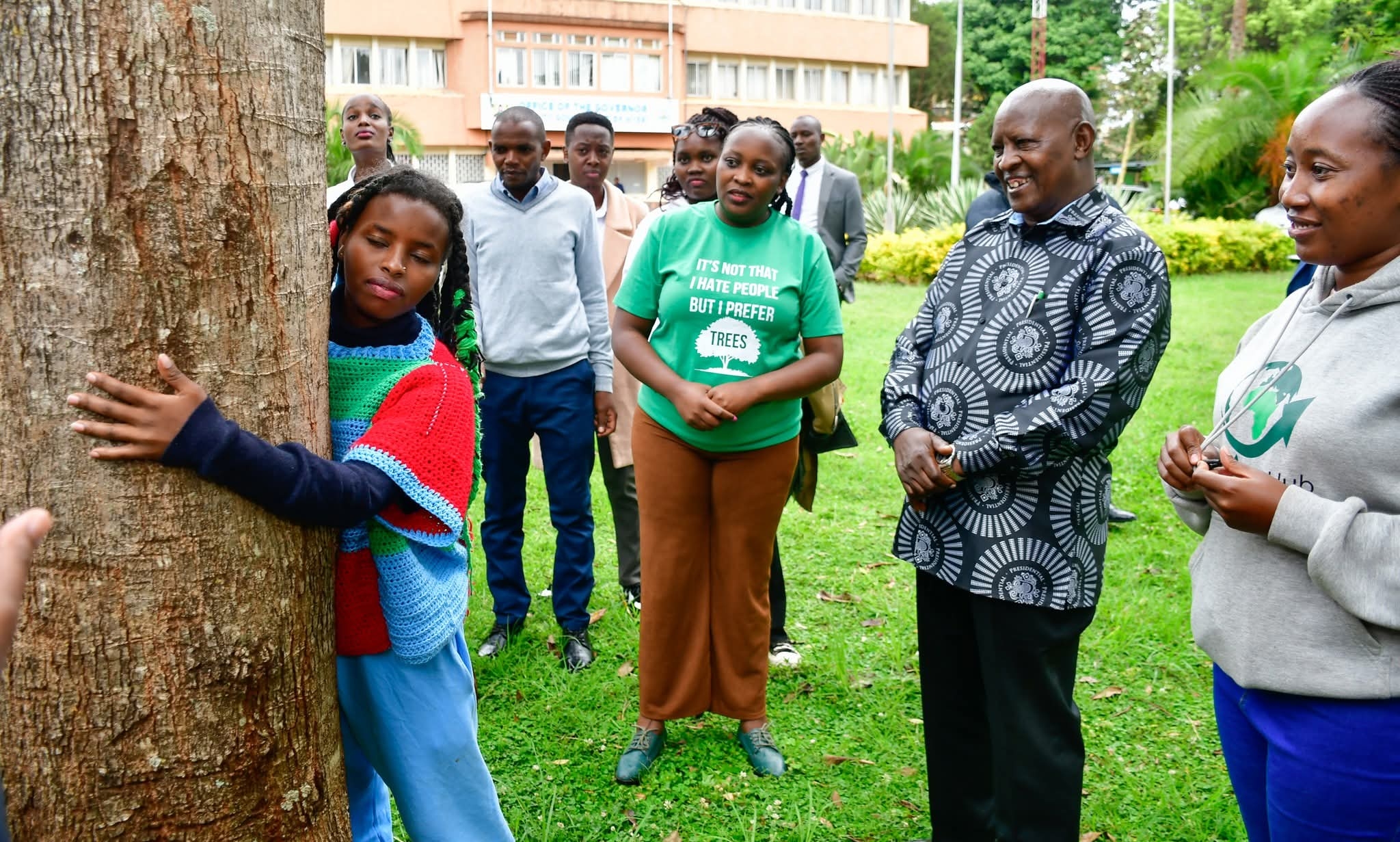
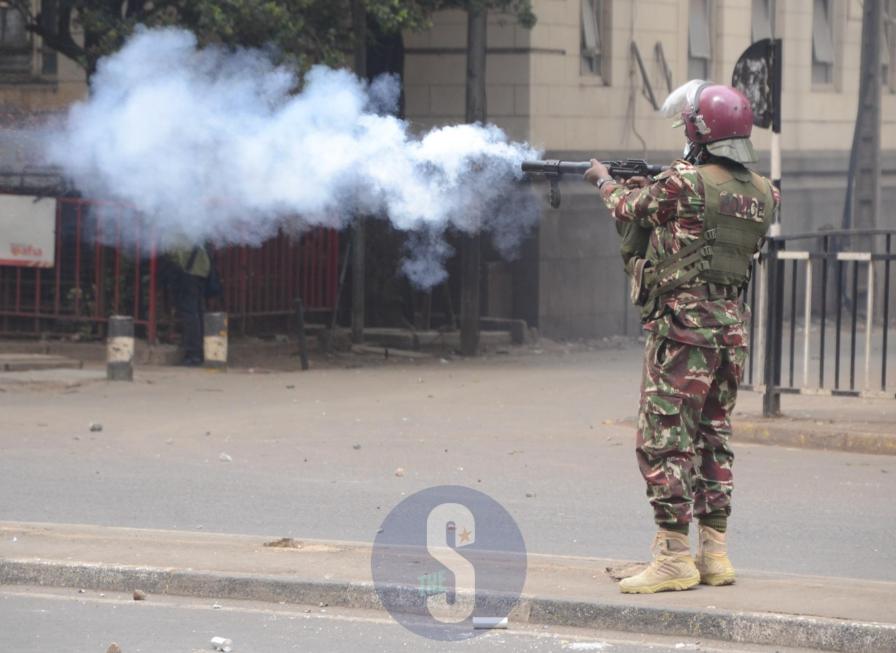 Police officer fires teargas to disperse protesters during demonstrations over the death of the late Albert Ojwang, on June 17, 2025/DOUGLAS OKIDDY
Police officer fires teargas to disperse protesters during demonstrations over the death of the late Albert Ojwang, on June 17, 2025/DOUGLAS OKIDDYKenya’s history is littered with numerous cases of police killings, enforced disappearance and other serious human rights violations dating back to Jomo’s era.
The ongoing investigations in the mysterious death of Albert Omondi Ojwang’ in police custody has revived memories of past cases of police brutality cutting across the social spectrum.
While different regimes called it different names, the pain and anguish inflicted on their targets-often civilians-has been the same over the years.
During the days of Jomo, the Special Branch and Jeshi La Mzee, inflicted untold pain on dissenting voices.
Today, President William Ruto’s administration faces a daunting task of bringing these human rights violations to an end, a promise he made to Kenyans in many public pronouncements.
For instance, one of the first clear case of police brutality happened in Kisumu on October 25, 1969 when presidential security fired live bullets at a crowd after Jomo was pelted with rotten eggs.
Several people died in the ensuing melee.
During those days, rogue police officers inflicted pain, terror and all manner of cruelty on the citizenry.
Some of the high-profile assassinations in Jomo’s time including the killing of fiery politician JM Kariuki, visionary Cabinet Minister Tom Mboya and journalist-turned-politician, Pio Gama Pinto.
When Kenyatta died and Moi, his deputy, assumed office, pledging to follow the footsteps of the founding president; ironically, police brutality moved a level higher during his tenure.
Feared and revered by many, Nairobi policeman Patrick Shaw became a law unto himself, his finger was always on the trigger-ready to fire.
The situation was exacerbated by the push for political pluralism and opening of democratic spaces in the late 1980s and early 1990s where pro-democracy figures faced untold torture by state agents, forcing some to seek asylum abroad.
It was during the advent of political democracy that the Moi regime opened the Nyayo Torture Chambers at Nyati House where state agents- the Special Branch, a group of secret police.
Some of the high-profile police killings during Moi era that remains unresolved to date include the assassination of the then Foreign Affairs Robert Ouko, detention without trial of many pro-democracy figures such as the late Kenneth Matiba, Koigi Wa Wamwere, George Anyona, Edward Oyugi, Ngugi Wa Thiongo, and Mukaru Nganga among others.
Apart from the torture chambers where those dimmed anti-Moi regime were allegedly detained, a branch of secret and killer police dubbed Flying Squad was formed to hunt down criminals to take them out.
Cases of police brutality continued unabated during Kibaki’s and appeared to have taken a dangerous trajectory during the 2007/08 post election violence where police were accused of teeming up the outlawed Mungiki sect to perpetrate killings in oppositions zones.
In fact that the then Commissioner of Police Hussein Ali found himself at the International Criminal Court (ICC) at the Hague over police misconduct.
The 2007/08 post poll violence showed clearly how deep impunity has been entrenched in the police.
Kwekwe squad was formed by the then Internal Security Minister, the late John Michuki in 2007 to counter Mungiki in Nairobi and Central Province.
It was disbanded two years later after public outcry.
A string of high-profile assassinations also happened during Kibaki’s tenure including the killing of Embakasi MP Melitus Mugabe Were in 2008, he was shot outside the gate of his home in Nairobi.
University of Nairobi lecturer Chrispine Odhiambo Mbai was murdered at his home on September 14, 2003.
Although his killing remains unresolved to date, it is believed the murder was politically instigated.
By the time of his death, Mbai was the Chairman of the Devolution Committee at the Constitutional Conference in Bomas of Kenya.
Lawyer Willy Kimani, a human rights lawyer who worked with International Justice Mission (IJM) was whisked away after a court session in Nairobi in June 2016.
He was murdered alongside his client Josephat Mwenda and taxi driver, Joseph Muiruri.
In 2023, the High Court sentenced former policeman Fredrick Leliman to death after he was found guilty of murder.
His co-accused, two other policemen and a civilian were also sentenced to between 20 and 30 years respectively.
During his tenure, many bodies were dumped at River Yala in Western Kenya between July 2021 and January 2022.
Hundreds of people are still missing to date including security analyst Mwenda Mbijiwe, he went missing on June 12, 2021 while driving along Thika Superhighway.
And, following Gen Z uprising last June, the police have been struggling to shake off accusations of using excessive force to quell the protests.
Consequently, the then Inspector General of Police Japhet Koome resigned on July 2024.
These cases of police brutality is a clear manifestation of the policing professional gaps and systemic failures dating back to pre-independence.
And, despite many commissions and inquiries having been formed to look into ways of addressing police brutality, police reforms appears to have slowed down or stalled along the way.
The Kriegler Report, Waki Report, Alston Report (2009), and recently retired Chief Justice David Maraga Taskforce recommended wide ranging reforms in the police but gaps appears to be growing each passing day.
A UN Special Rapporteur, Philip Alston conducted a 10-day investigation on extrajudicial killings, building up on the Waki Report.
The implementation of these reports appears to have stalled along the way.
Last week, Interior Cabinet Secretary Kipchumba Murkomen announced yet another raft of reforms in a bid to address growing cases of police brutality.
Murkomen proposed administrative, legislative and police reforms including the need for all the 1209 police stations in the country to be equipped with CCTV Surveillance to enhance transparency and accountability.
Others include annual training of police to enhance professionalism and digitization of Occurrence Book (OB).
The writer is a communication expert.






